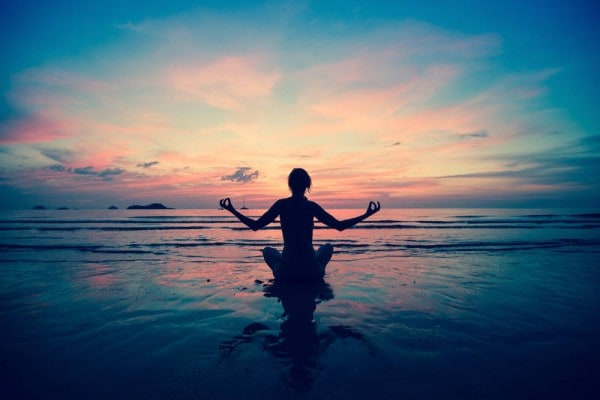Meditation is an art form that focuses on mental and emotional well-being. The practice of meditation is widely talked about in the health and wellness industry.
A lot of articles and research have proven the positive health benefits of meditation such as decreased anxiety, reduced depression, concentration and feelings of calmness.
People have tried meditation at least once in their life, but only a fraction of them continue on to taking this into a lifestyle habit. It is fairly common for beginners to lose their interest in meditation due to the lack of proper mindset. We created this simple list to help you know the recommended mindset and tips to help you integrate meditation into your lifestyle.
Preparation
It’s always best to be prepared! This also applies when it comes to meditation. Preparation can help us get the most out of any experience. When it comes to meditation, spending a few moments of your time to prepare can make a world of difference. Take a few minutes before your meditation, mentally and physically prepare yourself for the upcoming session. Preparation will also help you stick to meditation longer. This will also help clear your mind more before your meditation session.
Pick a Convenient Time
Meditation is not something you pack into your busy schedule just so you can say you did it. Meditation is a form of relaxation. We don’t get a relaxing break in the spa in the middle of one of your busiest days. Sticking to a strict schedule of meditation will only make it more of a task than a relaxation method. When in need of meditation, do it as soon as possible to get relief. But, when trying to make it into a permanent habit, pick a time that is most convenient to you. The ideal time will be when, after meditation, you can relax your body such as the evening. Sunrise or early in the morning is also a great
period for meditation. The body is still relaxed enough to get the optimum result of meditation.
Choose a Quiet Place
Where you practice meditation can help or deter your progress. Meditation requires a quiet sanctuary. A place where you are least likely to get disturbs or experience excessive noise. Apeaceful and quiet places can make the experience of meditation more effective and relaxing. During meditation we often experience heightened senses. So anywhere you would feel uncomfortable are not ideal for meditation such as extremely hot and humid areas, noise, tight and close spaces and soon.
Sit in a Comfortable Posture
How do you sit when you practice meditation? The way you sit during your meditation session can help reduce the effectiveness of the practice and in turn can cause you to get tired of meditation faster. Your posture plays a huge role when it comes to keeping up and effectiveness of meditation. Keep your body relaxed, steady and comfortable. Sit straight and keep you spine stretched. Lower your shoulders and relax your neck. Close your eyes and sit in your choice of the lotus position, sitting on your feet or just simply sitting on a chair.
Keep a Relatively Empty Stomach
A great time to meditate is when the body is not being held down by anything such as food. Food can make you feel heavier and have less concentration. It is said the vessel or our body is a lot more accessible by the mind when it is free or empty. That’s why it is believed that not eating, showering and removing worldly apparels are best before meditation.
Warm-ups
Like exercise, meditation needs a few warm ups to help reduce stress and stiffness. Performing short warm ups such as yoga exercises before starting your meditation can help reduce the stiffness of the body, improve circulation and make the body feel lighter. An important warm up is to breathing exercises, this will help open up your body for the upcoming meditation. Do a rhythmic breathing in and out to calm the mind before starting your practice.
Meditation is a great practice for your physical, mental and emotional health. Though, adapting meditation to your lifestyle can be difficult in the beginning. We hope that this article is able to help you with meditation. Share with us some of your long term meditation tips!
